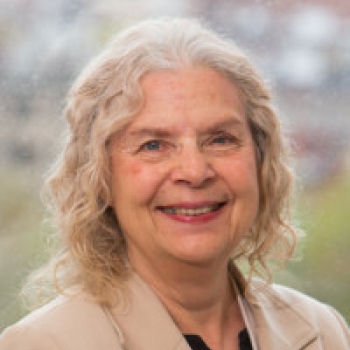
Professor Diana Van Lancker Sidtis, Ph.D., CCC/SLP, has undergraduate degrees from the University of Wisconsin and graduate degrees from the University of Chicago and Brown University. Additional predoctoral work was performed in the Phonetics Laboratory at the University of California at Los Angeles and she was an NIH Postdoctoral Fellow at Northwestern University in Evanston, IL from 1977-1980. She earned her Speech Pathology Certification at California State University in Los Angeles in 1988. She has taught at St. Olaf College, UCLA, the University of Minnesota, Carleton College, and Antioch University. Her previous academic position was at the University of Southern California Medical School, Department of Neurology, where she performed clinical service, teaching, and research in speech pathology and neurolinguistics from 1991-99. She was Chief of Audiology and Speech Pathology at the VA Outpatient Clinic in Los Angeles until 1999 and Chair of the Department of Speech Pathology and Audiology at NYU from 1999-2002. She is a member of the American Speech-Language and Hearing Association, the Academy of Aphasia, and the Acoustical Society of America. Dr. Sidtis is Acting Director of the Internal Faculty Advisory Committee for the proposed Rehabilitation Sciences PhD Program in the Steinhardt School.
RESEARCH IN PROGRESS. In the Brain and Behavior Laboratory at the NYU-affiliated Nathan Kline Institute for Psychiatric Research, in collaboration with laboratory director John Sidtis, projects include speech and language changes in Parkinson's disease, focusing on subjects who have undergone deep brain stimulation for movement disorders. Other projects include formulaic language in followling brain dysfunction, including Alzheimers disease and schizophrenia. Dr. Sidtis performs studies in voice in normal and disordered speech.
Selected Publications
- Ahn, J-S., Van Lancker Sidtis, D. & Sidtis, J. J. (2014). Effects of deep brain stimulation on pausing during spontaneous speech in Parkinson’s disease. Journal of Medical Speech-Language Pathology, 21(3), 179-186. PMID: 26848252
- Wolf, R., Van Lancker Sidtis, D. & Sidtis, J. J. (2014). The ear craves the familiar: Pragmatic repetition in left and right cerebral damage. Aphasiology, 28(5), 596-615.
- Yang, S-Y. & Van Lancker Sidtis, D. (2014). Cerebral processing of proper and common nouns: Perception and production following left hemisphere damage. Journal of Clinical Linguistics and Phonetics, 29(4), 319-332. PMID: 25517886
- Van Lancker Sidtis, D. & Wolf, R. (2015). Pragmatic verbal repetition: Review and application of a new method of quantification. Text & Talk, 35(2), 263-287.
- Hallin, A. & Van Lancker Sidtis, D. (2015). A closer look at formulaic language: Prosodic characteristics of Swedish proverbs. Applied Linguistics, 2017; 38(1), 68-89. doi:10.1093/applin/amu078
- Yang, S-Y., Ahn, J-S., & Van Lancker Sidtis, D. (2015). The perceptual and acoustic characteristics of Korean idiomatic and literal sentences. Speech, Language, and Hearing, 18(3), 166-178. doi:10.1179/2050572814Y.0000000061
- Van Lancker Sidtis, D., Cameron, K., Bridges, K., & Sidtis, J. J. (2015). The formulaic schema in the minds of two generations of native speakers. Ampersand, 2, 39-48. PMID: 26392923
- Stahl, B. & Van Lancker Sidtis, D. (2015). Tapping into neural resources of communication: Formulaic language in aphasia therapy. Frontiers in Psychology, 6, 1526. doi:10.3389/fpsyg.2015.01526
- Van Lancker Sidtis, D., Choi, J-H., Alken, A. & Sidtis, J. J. (2016). Formulaic language in Parkinson’s and Alzheimer’s disease: Complementary effects of subcortical and cortical dysfunction. Journal of Speech Language and Hearing Disorders, 58(5), 1493-1507. PMID: 26183940 (view)
